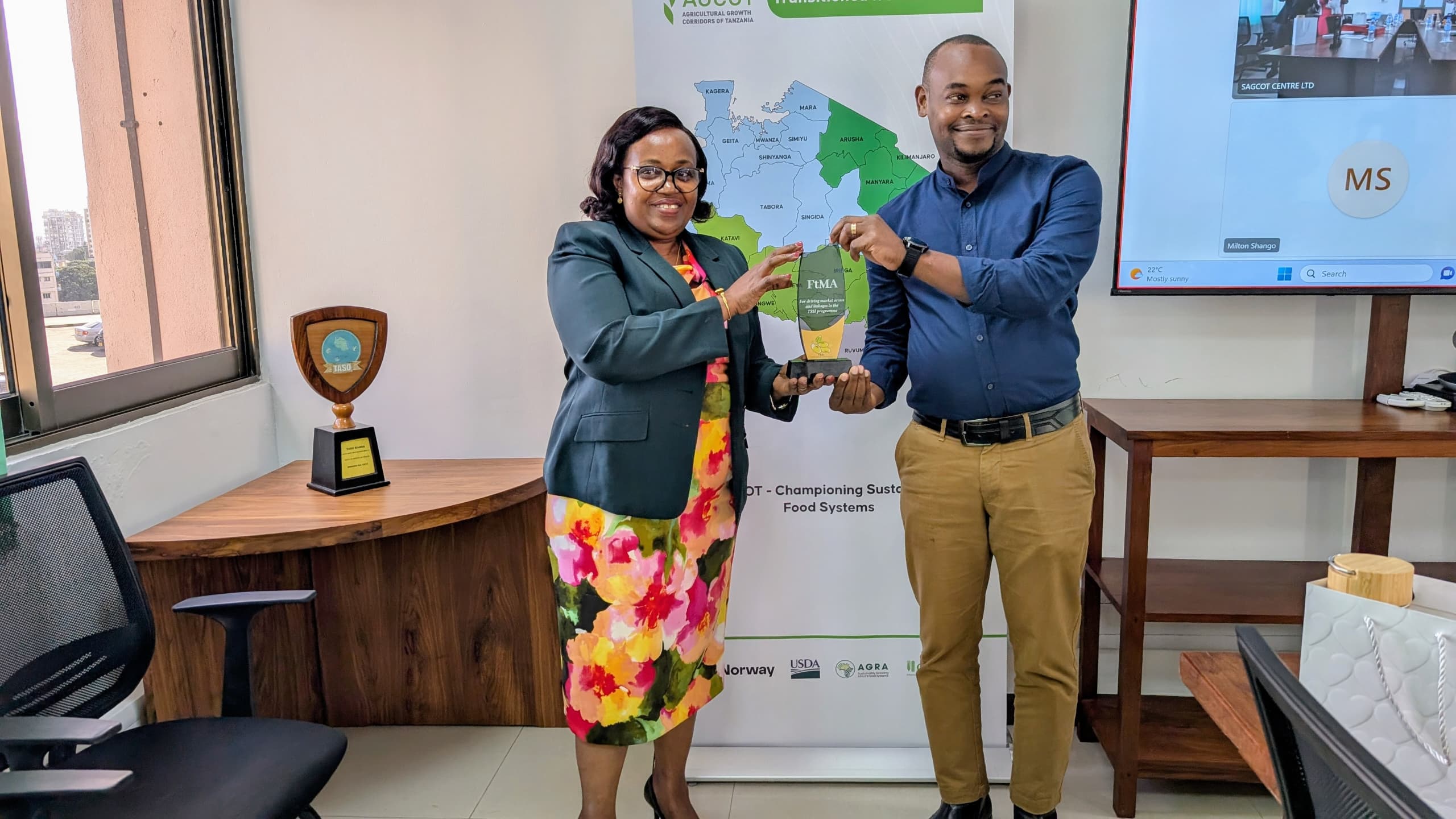Dar es Salaam
In a room filled with energy and optimism, stakeholders from across the agricultural value chain gathered on July 9, 2025, at AGCOT’s headquarters in Dar es Salaam to chart a new course for Tanzania’s soybean sector. The meeting, hosted by the Agricultural Growth Corridors of Tanzania (AGCOT) as part of the Tanzania Sustainable Soybean Initiative (TSSI), marked more than just a routine strategy session—it was a declaration of intent.
With participants joining both in person and online, the event brought together an alliance of government bodies, international development partners, research institutions, private agribusinesses, and farmer cooperatives. United by a shared vision, they reaffirmed their commitment to transforming Tanzania into a regional soybean powerhouse while ensuring sustainability and inclusion remain at the heart of growth.
A National Movement Rooted in Collaboration
What set this gathering apart was its emphasis on collective action. “TSSI is not just another project,” said John Nakei, Acting Head of Clusters at AGCOT. “It is a national movement.” With ambitions to engage over 150,000 smallholder farmers, unlock more than 250,000 metric tons of soybeans annually, and position Tanzania within Africa’s growing soybean value chain, the stakes are high—but so is the potential.
The initiative has already expanded from pilot programs in six key regions to catalyzing investments, developing aggregation models, and influencing national policy through the Soybean Commodity Compact. As TSSI Manager Abdallah S. Msambachi noted, “We’ve moved beyond asking whether soybeans can work in Tanzania. Now it’s about how fast—and how effectively—we can scale what’s already working.”
Lessons in Patience and Purpose
Dr. Frederick Baijukya of the International Institute of Tropical Agriculture (IITA) offered a sobering yet inspiring reflection drawn from his decades-long experience in Tanzania’s sunflower industry. “Transformation doesn’t happen overnight,” he reminded the audience. Having joined the sunflower sector in 1988, he only saw its full impact two decades later.
His words served as a reminder that patience, consistency, and strategic partnerships are essential for sustainable growth. He advocated for inclusive contract farming models, blended financing, and strong market linkages—tools that can empower smallholders while attracting private sector investment.
Digital Innovation: The Engine of Inclusion
As discussions unfolded, one theme became increasingly clear: digital innovation is no longer optional—it’s foundational. From farmer profiling and traceability systems to data-driven planning, technology is becoming the backbone of inclusive agriculture.
“Let’s plan together if we want to succeed together,” one participant remarked—a sentiment that echoed throughout the day. By aligning early, co-creating strategies, and sharing risks, partners are laying the groundwork for long-term success.
Celebrating Key Partnerships
The meeting also featured a recognition ceremony to honor the contributions of TSSI’s core partners:
- ASPIRES Project – Recognized for championing policy and innovation.
- Farm to Market Alliance (FtMA) – Honored for driving market access and linkages.
- AGCOT – Acknowledged for steering national coordination and scale-up efforts.
- IITA – Celebrated for leading research and technical excellence.
Anna Mtaita, AGCOT’s Head of Finance & Administration, presented plaques to representatives from each partner organization, including Honest Mseri of FtMA, Claire Ijumba of ASPIRES, and TSSI Manager Abdallah Msambachi, flanked by Prudence Lugendo, AGCOT’s Policy Specialist.
“These acknowledgments aren’t symbolic gestures,” Mtaita said. “They’re a testament to the trust, collaboration, and shared responsibility that make TSSI possible.”
Looking Ahead: A Soya-Sustainable Future
While challenges remain—from infrastructure gaps to financing constraints—the momentum behind TSSI is undeniable. Farmers are organizing around market opportunities, processors are investing, and policymakers are beginning to respond.
This renewed energy signals a turning point—not just for soybeans, but for Tanzania’s broader agricultural transformation. As AGCOT continues to rally its partners, the message is clear: with the right leadership, innovation, and collaboration, Tanzania is poised to become a model for sustainable, inclusive agri-business in East Africa.
TSSI is only getting started. And the future of soybeans in Tanzania has never looked brighter.
About TSSI:
The Tanzania Sustainable Soybean Initiative (TSSI) is a multi-stakeholder partnership led by AGCOT to transform Tanzania’s soybean value chain through inclusive business models, improved market access, and supportive policies. It seeks to enhance food security, create jobs, and drive economic growth through sustainable agricultural practices.
About AGCOT:
The Agricultural Growth Corridors of Tanzania (AGCOT) is a public-private partnership platform aimed at promoting sustainable agricultural growth and rural development through corridor-based investments and value chain integration.
